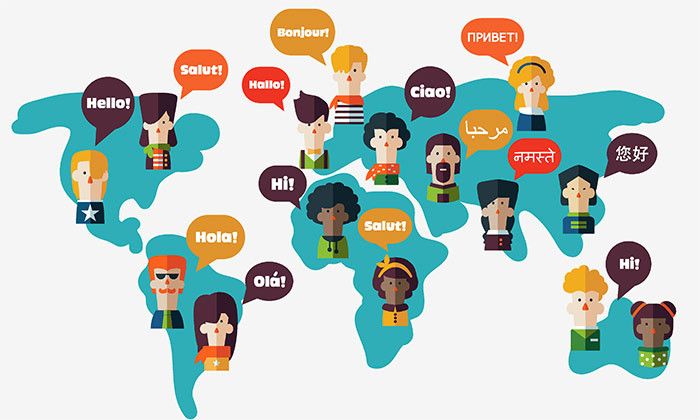Do We Discriminate On The Basis Of Language?
Jun 08, 2019 • 9 views

Envision living in a country where you, an individual can’t read the label on a medication, the menu at a restaurant or even the billboards on the street; a place where you can’t understand the forms needed for your driver’s permit, tax documenting or marriage.
This is the world that a huge number of Indians live in simply because the privileged favour English. This segregation has turned out to be systemic to the point that the upper and middle classes send their children to private schools that prioritize English while the poor send theirs to the government school of their primary language.
It has become that colleges and even government employments require familiarity with English, as ordered by the decision of the privileged class. So, a man’s socioeconomic status in the society is according to his or her familiarity with the dialect. At the end of the day: another caste system.
It is tremendous that the greater part of individuals in India are being mistreated by the simple absence of learning of a dialect. By not having access to medical guidelines, food labels and information related to nutrition, government forms, road signs, and even motion picture tickets in their native language, they are being hurt in the most prejudicial of conduct. This discrimination is simply illogical.
If a maid or a peon know keywords of English or can write their names doesn’t mean they truly know the language. In fact, the need to fit in andthe fear ofdiscrimination has forced them to keep up with the language that they don’t understand.
Why English has turned into the dialect of the privileged
There are a huge number of reasons with respect to why English has turned into the dialect of the privileged class in India. It remains that Indians have come to trust that their country’s flourishing, and in addition their own, is entirely reliant upon learning English as well as solely learning it as a first dialect. It started with the traveling, working with multinational organizations and the influence that the western world has upon us.
Knowing the language has allowed people to feel superior to others. This is mainly the reason people are mistreated because they like the feeling of superiority they feel when they target someone who is not well versed with the language. It is sad to see how a language is being used to bring people down and is portrayed as a symbol of status in society.

English in India
The most talked dialects in India, as indicated by India’s enumeration information, are Hindi (422m), Bengali (63m), Marathi (52m), Tamil (60m), Gujarati (50m), and Punjabi (30m). Just about forty-five percent can communicate in English. It is found that out of the forty-five a scope of twenty percent are capable of communicating in fluent English—however just a third appear to read and write. All things considered, it is simply disappointing and a humiliating situation for the other 50 – 55% of Indians. Relevantly, this would mean somewhere in the range of 30-35% individuals are being abused and discriminated every day because they are not educated enough or don’t speak the language well.
To investigate the issue at a more primary dimension, all advancement starts with instruction, and training, obviously, comes from dialect. However, the dialect is significantly more than a method for correspondence; it decides the books one peruses, the TV programs one watches, the thoughts one is presented to, the qualities one holds, personal interests, and one’s professional opportunities. Basically, it characterizes our personalities. Therefore because of the partiality that is there to the English dialect the culture and diversity of India is being neglected and forgotten and we are also missing out on beautiful writers, activists, performing artists, actors and speakers who have so much to contribute and teach but are only familiar with their very own dialect.

What can we do?
We need to learn to accept our culture. We need to be proud of it. We need to stop adopting and getting influenced by other cultures. We need to learn more about our own and appreciate the beauty of it.
Stop making fun or looking down upon who can’t communicate or understand a language the way you can. In fact, we should teach or correct the other person. There is no reason to feel humiliated because there is always something you are going to be good at and some things that you are not. Maybe you are good at writing but not speaking and that is okay. We have all our lives for the opportunity to learn.
Let’s use language as a way to unite and grow, not use it as a weapon to attack.
